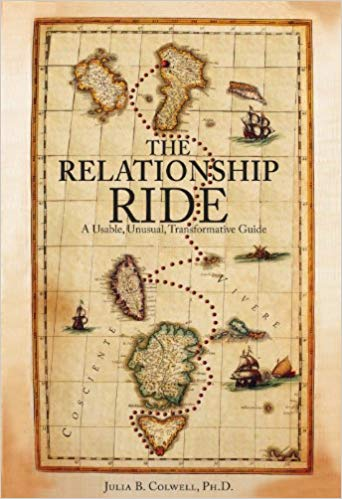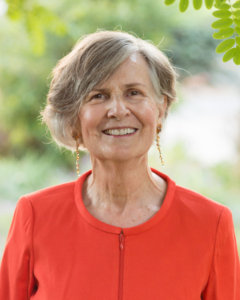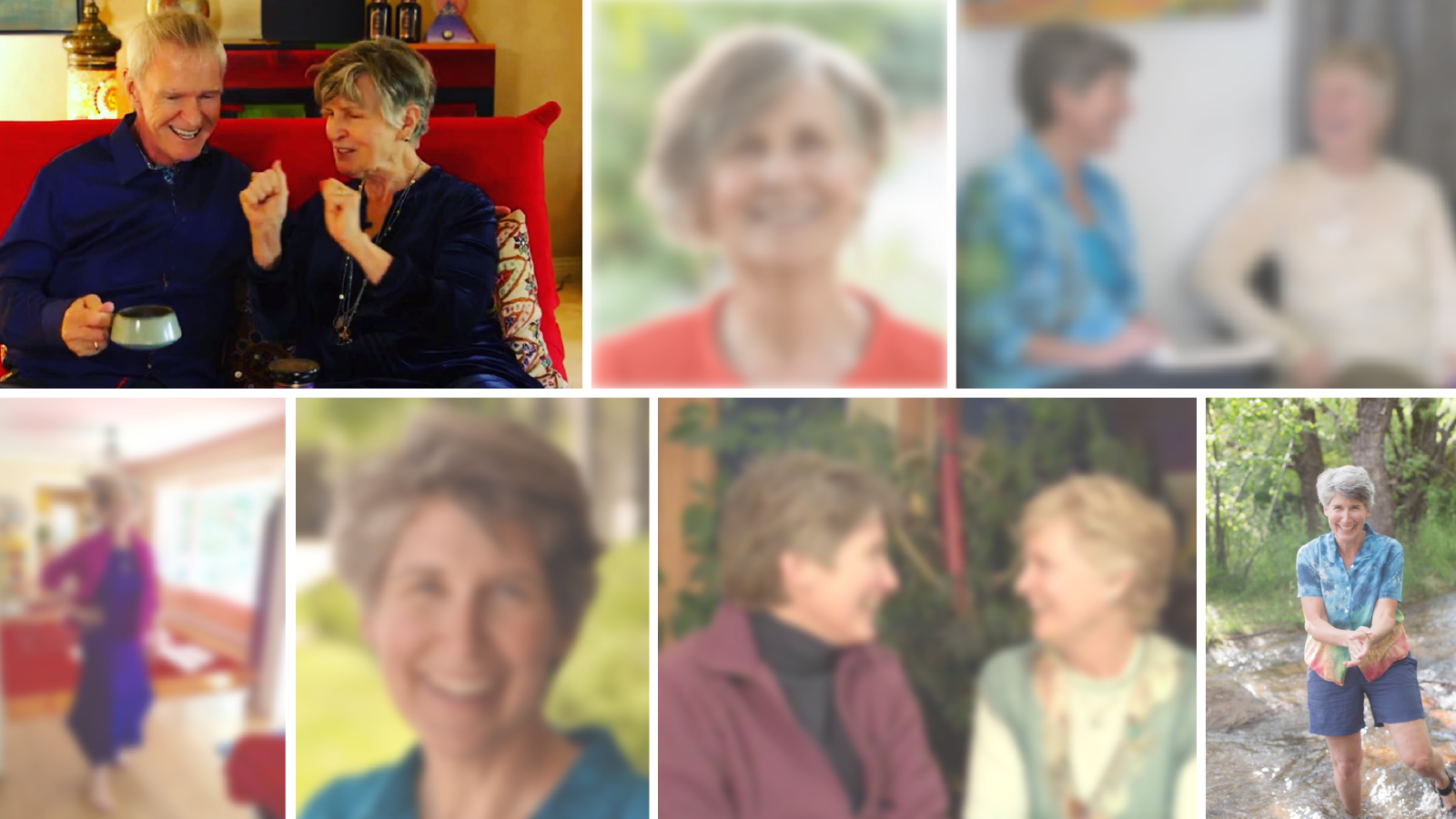Kathlyn (Katie) Hendricks, PhD, BC-DMT, and Julia (Julie) Colwell, PhD, are pioneers in the field of human consciousness, conscious leadership and human potential. Nancy Kepner, co-founder of Crafted Leadership, LLC, sat down with Katie and Julie to get their perspective on a range of issues. Crafted Leadership’s mission is to spread conscious leadership throughout the global workplace, using Julie and Katie’s work as the foundation.
Nancy: You both have these wonderful external practices to reflect the internal landscape. You have this profound knowledge and courage. You’re both public figures. What happens when you feel vulnerable? Do you feel vulnerable?
How do you maintain that courage because, speaking for myself, I try to osmose the courage that you have, and I’m curious about experiencing vulnerability and maintaining the courage.
Julie: In the last while, I don’t know how long, I finally realized that if I feel slightly nauseated while I’m doing whatever I’m doing, that’s the right place. That’s the place right out there in possibility. I don’t know what is going to happen next. It’s fascinating because it’s unfolding.

When I’m in the moment so much that I don’t know what’s going to happen, this IS the place. That is the sweet spot. I’m starting to see, okay, more of that is a good idea, instead of, that means I’m going in the wrong direction. So, I would put that in with vulnerability.
For me, it’s also, vulnerable to what? I always wonder. Vulnerable to attack, I guess is applied there, so, vulnerable meaning I’m not so armored, I’m not so defended, I’m open to things unfolding, versus being right.
The good old days when I just knew I was right, that was easier, but it certainly wasn’t as interesting and fruitful. Being able to tolerate this other new place, that’s where the magic happens. That’s where flow lives.
For me, magic is, “I didn’t know that. I didn’t know that possibility existed. Suddenly, here it is. It’s just unfolding before my eyes and I’m in the middle of it. I’m in the middle of creation.” Angels can sing in that moment, and I think that’s what life really could be, but it requires not-knowing. That’s hard for me, to be in that place, on the high-wire, I’m going to take this next step and hopefully there’s going to be something under my foot. I don’t know, but that’s where the excitement lives, and I really think that’s where the miracles happen.
Katie: Beautiful. I love what you were saying about vulnerability. I don’t actually experience myself as … I don’t ever feel vulnerable. I don’t. I wouldn’t name that. What I’ve experienced over the years is exploring and being with, and choosing to be open and weird, choosing to be open. Because I am a registered Dance Movement Therapist, I made my living as a Dance Movement Therapist. Now imagine telling people what that is and how that might benefit them. So I have experience inviting people into unusual contexts.

I have been compelled to speak up when I see injustice. I remember being 9. I think I was in the 4th grade, and the teacher was berating one of my fellow students. I don’t know who did this but somebody stood me up and said, “You can’t talk to him that way.” and the teacher stopped. I learned that I can be at home in what’s true, even through fear. So, if I have a feeling, and I’m having a feeling in public, I experience the feeling in public. I’ll just say, “Oh, I’m noticing I’m tearing up.” Or, “Wait a second, something is happening. I’m getting activated here and I feel the impulse I want to yell at you. So, hold on a minute while I presence.”
I’ll do my best to speak my experience because I have such a clear, deep track record of speaking my experience and being available to really hear and be with the other person’s experience. Authenticity creates a ground of safety where more opening can occur.

My body of work, particularly with leaders, is about getting comfortable with stepping out into the unknown over, and over, and over again. There’s this great scene in one of the Indiana Jones movies where he is out on a ledge and thinks, that’s it, I think I’m going to die. And he steps anyway.
So much agency and response-ability comes from “I choose.” For example, when I met Gay, he said, “Come and live with me in Colorado.” I didn’t know anybody. I left my entire world. That choice was much more interesting to me, being fully alive is much more interesting to me than being safe in what I already know.
Being in evolution comes from really claiming your creativity. That’s what we call response-ability — reclaiming your creativity because when you’re not responding, you’re creating unconsciously, you’re creating reactively.
Actually being able to respond, to engage, declares, “I am in the creative wave. I’m creating this and you are creating this. Look at what we are creating! Oh, my God, look what we created!” Back to the drawing board.
Nancy: I’m trying to think if I’ve ever seen an interview, like all of those 60 Minutes interviews where they are face-to-face — I don’t know if I’ve ever heard anyone talk about their inner-experience. Like, “Well, when you ask that question, I feel really afraid.” You can sometimes see the feeling in the person, but how fascinating that would be for somebody to just name it.
Julie: I’d say to 60 Minutes (and everyone else), people are fascinated by that, because as soon as I told you (like right now) that my stomach feels some sort of pulling in sensation, you probably checked your stomach.
Just by talking about where my awareness is pulls your awareness in a different way. Now, we are looping together. This is cool and people are fascinated because, wow, I get to have a little tour of that famous person’s innards. Who gets to do that? It’s better than the White House tour, to really know what’s going on in those moments. That’s about as intimate as it gets.
Katie: I think that’s really what we are longing for, this inner frontier. We are reaching, maybe we’re going to find the excitement as if we go to Mars. Let’s go to inner Mars!
Julie: People need examples and models that this is how you do it.
Katie: It’s no big deal.
Nancy: You won’t die.
Katie: There may be an old contraction, an old way of looking at the world that does die – but what blossoms is an expanded aliveness, and a freedom of choice. I sometimes use the example of people as instruments and that most people are playing Chopsticks. Part of what I hear you talking about, too, Julie, is that enjoying the range of your instrument is your human birthright, to feel fully and to engage, and to co-create, and to mess things up and start over, to have things come into being and dying away, the whole journey rather than having your face up against the window and longing.
—
Other blogs from this interview touch on fear, courage, emotions in the workplace, flags, their bodies of work, and the present world. Read the next and final installment, Part 9 — The Present World.

